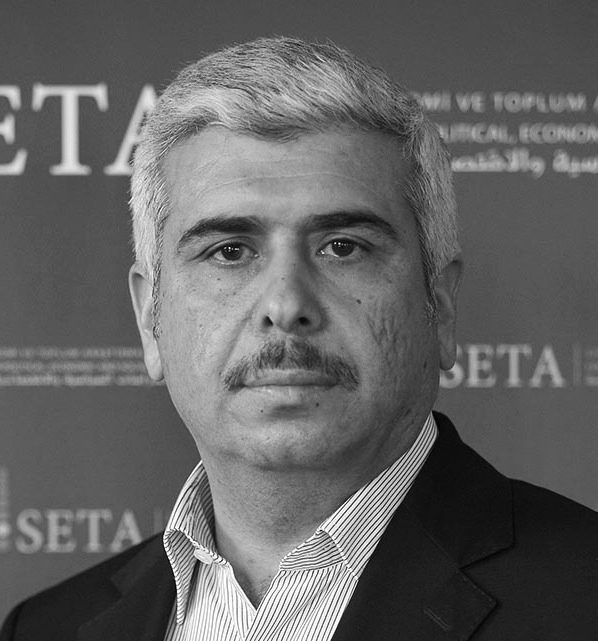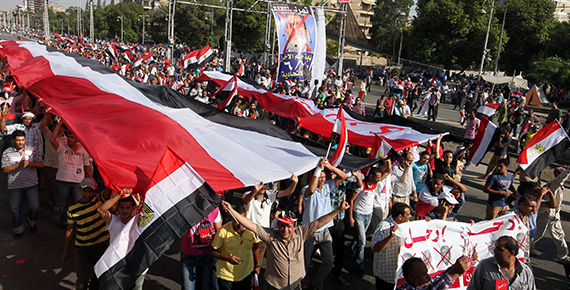On the first anniversary of Mohammed Morsi’s tenure, who is the first civilian President of Egypt, the protests launched by the opposition made a peak on June 30, 2013. Morsi and the Muslim Brotherhood (Ikhwan) were the targets of these demonstrations led by the Tamarrud (Revolt) Movement. Following the Tahrir Revolution, the Freedom and Justice Party (FJP) formed by the Ikhwan and the Nour Party, consisting of the Salafi coalition, became remarkably successful in the first parliamentary and the Shura Council elections. In the presidential elections afterwards, Morsi defeated Ahmad Shafik, a former military member who served as the prime minister during the ousted Hosni Mubarak regime.
The Egyptian people with high expectations after the revolution waited for a miraculous success and wished to have an overnight solution to ancient issues, yet showed no patience and endurance. This was the starting point for the opposition that had failed in all of the elections. Destructive propagandas of the opposition movements that had no particular project to solve Egypt’s problems; and the resistance of capital holders, bureaucracy and media to the new process prepared the ground for today’s military coup. As a matter of fact, this coup is a move to conclude by putting it before the military the process that the judiciary, police, media and capital circles plotted and mobilized the disorganized opposition forces. The announcement of the coup statement transformed into a starter of the argument “this is not a military coup, for it is backed by the masses.”
It is also meaningful to see that those who signed President Morsi’s arrest warrant are the leading actors of the political chaos that the country is dragged into. Interestingly enough, as the representative of the liberals Mohammed al Baradei and the Nour Party leader Yunus Mahyun - both of whom are the passionate proponents of the Sharia and “religious state” debates - stroke a pose of “common interest” solidarity in the same frame. Representatives of the liberal circles who were involved in the construction process of the new Constitution and the representatives of the Copts had withdrawn from the committee as a result of the impositions of the Nour Party. The Copt Orthodox Church Patriarch Tovadros and Ahmad Tayyip, an Ezher Sheikh with a Sufi background who is engaged in theological debates with the Salafi movements, are the other actors who played a role in the coup’s gaining legitimacy. This military coup indicates that the tutelary regime, which has tacitly continued after the revolution with all its actors, is unveiled now.
THE IKHWAN IN EGYPT’S FUTURE
Although this coup disrupting the spirit of the Tahrir revolution and shelving the gains of the last two years has caused a temporary interruption in the Arab world, which has been in a process of change and transformation since the beginning of the Arab revolutions, it will not obstruct the construction of the new process and shaping the future. The military intervention aimed calibration of the civilian politics but turned it into a chaos by preventing the natural flow of internal dynamics, and it is not possible to evaluate this intervention independently of external dynamics. In a period where the models of administration for the Islamic world are opened to discussion, one of the rooted movements of the world, the Muslim Brotherhood’s model is not given an opportunity to be tested. This movement spread from Egypt to the whole Arab-Islam world as a result of the oppression policies implemented by the late President Jamal Abdel Nasir, and its most critical asset is its “organized” structure. The Muslim Brotherhood draws its strength and charisma from the principles advocated and does not give much importance to a living leader-oriented charisma. Although the Ikhwan is a political movement since the day it was born, it was prevented from conducting politics, so it had to survive as a “religious c









